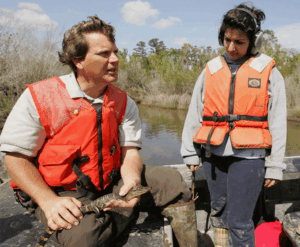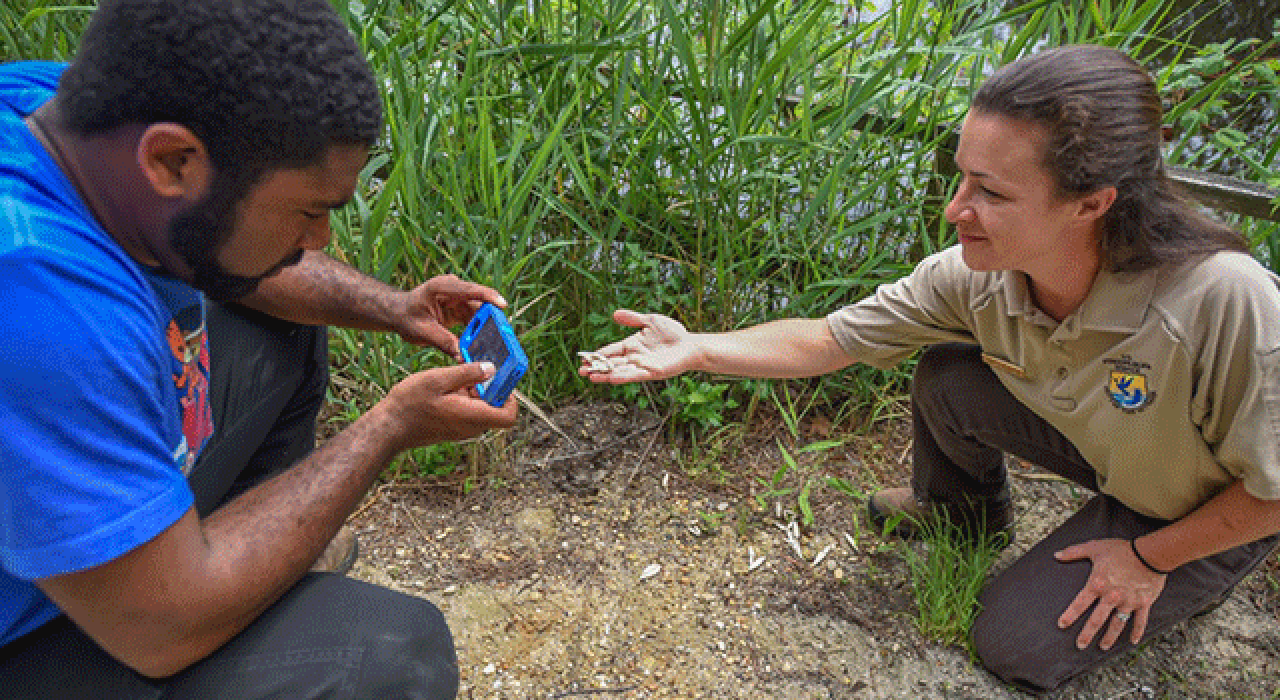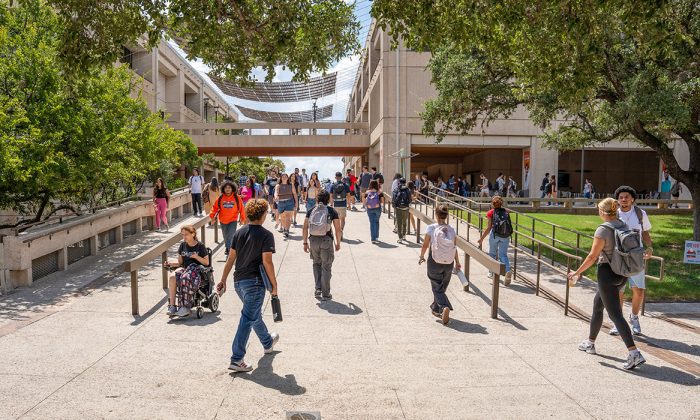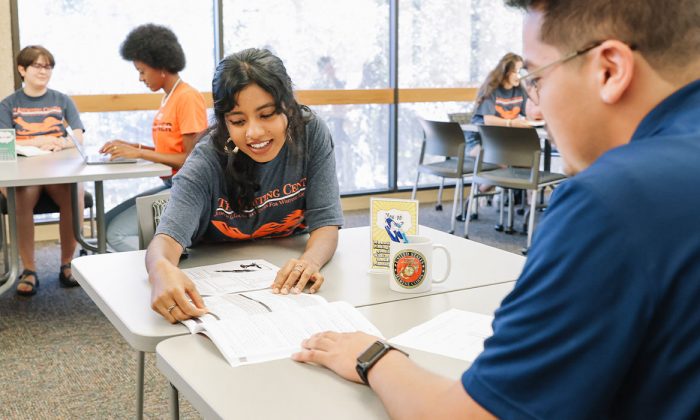UTSA has signed a memorandum of understanding with the U.S. Fish and Wildlife Service (FWS) and New Mexico State University (NMSU) to create a consortium that will establish a pipeline for STEM students at UTSA and NMSU to be placed in rewarding internships and professions. The workforce training and education from these experiences will prepare students for future careers within FWS and other federal agencies.
“We are truly appreciative of this opportunity to collaborate with the U.S. Fish and Wildlife Service and New Mexico State University in creating a model for other minority serving institutions to provide valuable experiential learning opportunities,” UTSA Provost and Senior Vice President for Academic Affairs Kimberly Andrews Espy said. “Through Classroom to Career opportunities including internships, peer-to-peer mentoring and experiential networks, we will support students, faculty and early career professionals with unique experiences and career preparation for competitive professional natural resource career positions.”
“UTSA aspires to develop leaders in natural resources and conservation. We have developed our curriculum to prepare our talented students for careers after they graduate.”

UTSA, a federally designated Hispanic-Serving Institution, established the Classroom-to-Career Initiative in 2018 as part of its 10-year strategic plan to help students gain the hard and soft skills in demand by employers. The program is particularly important in UTSA’s efforts to turn classroom success into lifelong professional success after graduation. By 2028, as part of its strategic plan, UTSA aims for 75% of its undergraduate students to participate in some type of experiential learning by the time they graduate.
This formal partnership between UTSA, FWS and NMSU will help students gain exposure to research and career opportunities, within FWS or similar agencies, and prepare them to become research and policy leaders.
“We are excited to formalize this partnership that will provide a platform to recruit students from diverse backgrounds into conservation career opportunities within the U.S. Fish and Wildlife Service,” Service Director Martha Williams said. “The future success of the Service hinges on recruiting, welcoming and empowering bright, driven professionals from diverse backgrounds who can help us find effective approaches and innovative solutions to meet the conservation challenges of today and the future.”
The MOU will establish a consortium of minority-serving institutions with UTSA as a founding ambassador. The consortium will work to cultivate talented undergraduate and graduate students and connect them with experiential learning opportunities via a network of faculty and students engaged in research related to FWS.
“UTSA aspires to develop leaders in natural resources and conservation,” said Janis Bush, professor and chair of the UTSA College of Sciences’ Department of Integrative Biology. “We have developed our curriculum to prepare our talented students for careers after they graduate. This MOU and consortium will enable our students to collaborate with their peers from other universities, which will create new and exciting career opportunities.”
“The signing and actualization of the intent of this Memorandum of Understanding between these educational institutions and the U.S. Fish and Wildlife Service is a significant step in advancing more diversity in natural resources and environmental sciences careers,” said Benjamin Tuggle, former assistant director for the Science Applications program at FWS.
Tuggle is the namesake for UTSA’s Tuggle Scholars Program, which is dedicated to mentoring and training graduate students who aspire to become leaders in environmental science and ecology. Tuggle worked with FWS from 1979 until his retirement in 2019 and served as a liaison for both the university and the agency at the recent signing.
“The subsequent actions of the partnership and the development of the relationships will play a pivotal role, over time, in developing a new generation of highly trained minority students that government, educational institutions and industry can employ,” Tuggle added.
Participants met online earlier this week on Monday, April 11, to sign the MOU. UTSA faculty and staff convened at the John Peace Library on the UTSA Main Campus. UTSA President Taylor Eighmy signed on behalf of UTSA. Joining Eighmy for the signing were Espy; Heather Shipley, senior vice provost and dean of the University College; David Silva, dean of the College of Sciences; Bush; Amelia King-Kostelac, assistant professor of practice in the Department of Integrative Biology; and Julian Chavez, undergraduate program manager for the department.
Martha Williams, director of U.S. Fish and Wildlife Service, was the signing official for U.S. Fish and Wildlife Service. Representatives from the agency also included Cynthia Martinez, chief of the National Wildlife Refuge System, Inez Uhl, chief of the Office of Diversity and Inclusive Workforce Management, and Doug Hobbs, chief of the Division of Partners and Intergovernmental Affairs, External Affairs.



